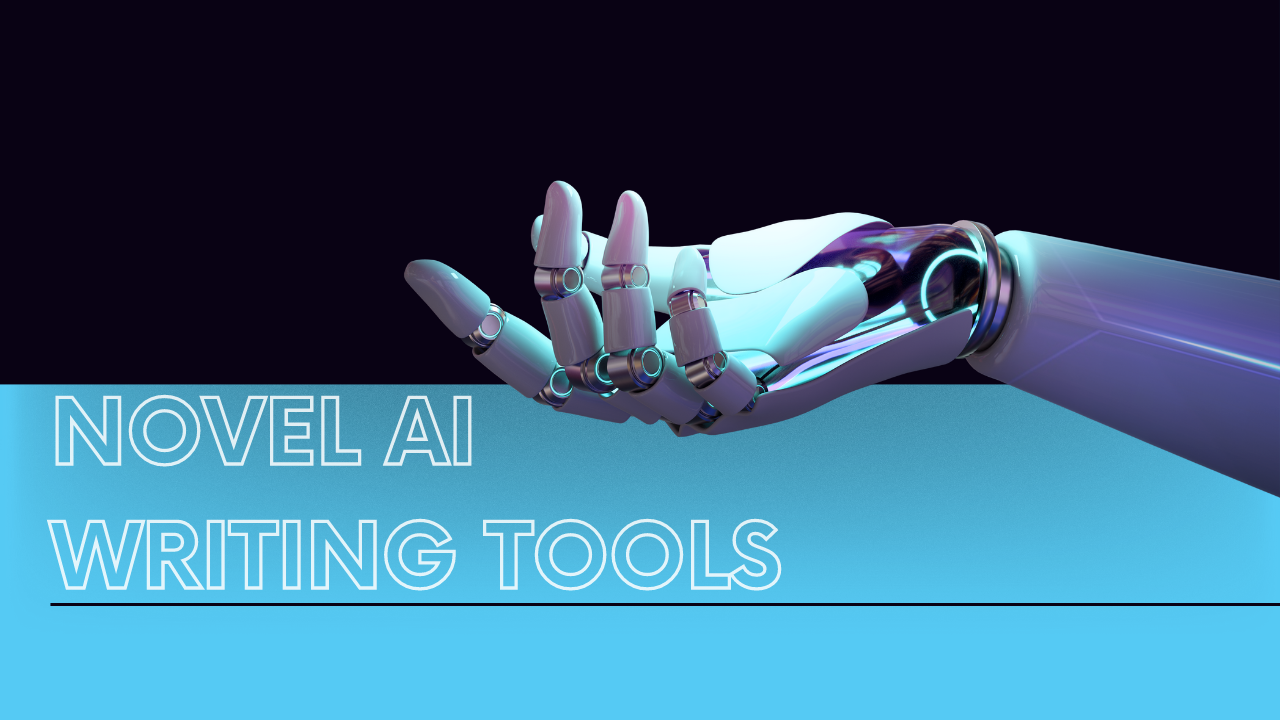For a lot of writers, beginning the process of creating a novel is a daunting endeavor. The difficulties of generating fascinating characters and weaving rich tales during the entire writing process provide considerable hurdles. Thankfully, the introduction of artificial intelligence has transformed the environment of book writing.
AI-powered novel-writing tools have appeared as helpful resources, relieving authors of restraints and expediting their creativity. This article delves into the area of artificial intelligence book writing software, evaluating the current possibilities and providing light on how these revolutionary technologies may bring stories to life. Writers are worried about questions like Does Google penalize AI content?” or “Can Google detect AI Content writing? The possible influence of AI-written content for SEO or Will content writers be replaced by AI?
We’ll tell you all about Novel AI writing tools and resolve your queries.
How does an AI novel generator work
Artificial intelligence novel generators use a complicated combination of machine learning and natural language processing methods. These advanced computers are trained on massive volumes of text data, including previously published novels, short stories, and literature. The Novel AI model acquires the ability to write a unique text that resembles the qualities of human-authored books by analyzing patterns, styles, and topics in the training data.
When someone works with a Novel AI book generator, they usually offer some preliminary input, such as a question, a genre, or a collection of characters. Based on the provided information, the AI model leverages its training to construct a continuation or a whole book.
The produced text is designed to preserve unity, narrative aspects, and a sense of human-like inventiveness. AI novel generators develop over time by iterating and improving their output, absorbing input, and improving it to increase the quality of created novels.
How to use AI Novel writing Software free
Novel AI writing software offers four pricing plans.
The “Paper” plan is a fantastic choice for individuals who wish to test the platform’s potential for free. This plan is free AI Novel writing software that provides consumers with a trial period to test the features.
In the trial, people can produce up to 100 sentences using Euterpe, the second-best AI Storyteller. This AI model, noted for its innovative thinking and storytelling abilities, may help users create compelling narratives.
Furthermore, users have access to around 8192 characters of Memory, allowing them to work with large amounts of text and ideas. In addition, the “Paper” plan enables customers to make up to 100 AI text-to-speech conversions, turning their composed words to live with realistic and dynamic voices. This scheme is a fantastic beginning place for people who want to test the waters and learn more about Novel AI.
Other alternatives like
- Jasper
- Bottom Line
- Sudowrite
- Rytr
- Growth Bar
Moreover, there are numerous free AI services provided by different creators.
Free Novel AI Writer tools
Accessibility to free AI novel generator writing software for book writing can be a gift for budding authors. These tools provide a variety of features and functionalities at no cost. Free Novel AI Writer tools help authors overcome obstacles and improve their writing process.
These techniques help create unique ideas, construct fascinating characters, and craft captivating narratives. These programs analyze enormous volumes of text data using artificial intelligence to provide ideas, enhance grammar and consistency, and even write chunks of a book. Amateur authors may now use AI novel generator technology to bring their ideas to life with no financial investment required.
Pros & Cons of Novel AI Writer
The book AI Writer has both advantages and cons.
The pros of AI writing:
- It provides authors with unparalleled help, giving practical tools to expedite the process of creation.
- It may spark ideas, propose story twists, and boost productivity.
- The giant knowledge base of AI enables accurate information and in-depth study.
- It also allows authors to experiment with various techniques and genres.
The cons of AI writing:
- The depth and complexity of human ingenuity may be lacking in AI-generated work.
- It may struggle to grasp complicated growth in character and mental capacity.
- Dependence excessively on AI may also suffocate uniqueness and the author’s distinct voice.
Novel AI Pricing
Novel AI recognizes its consumers’ different wants and preferences, which is why it provides a variety of options to pick from.
The “Tablet” option, which costs $10 per every month, includes limitless text production and the usage of Euterpe and other low-cost models. Users may use up to 4096 characters of Memory, receive 1000 Anlas every month, and take advantage of powerful AI text-to-speech and text-to-image production.
The “Scroll” plan, which costs $15 a month, includes all of the same features as the Tablet plan but has a larger memory capacity of roughly 8192 characters.
The deluxe “Opus” subscription costs $25 a month and provides:
- Limitless text generation.
- Access to all models.
- 8192 characters of Memory.
- 1000 words per month.
- Powerful AI text-to-speech and text-to-image era.
- Testing features.
Can search engines detect AI content?
Search engines have improved their detection of many sorts of information, especially AI-generated text. While AI-generated material can be excellent in replicating human language, SEOs are improving their ability to recognize between AI-generated and human-generated information.
They use algorithms that examine numerous elements, such as writing style, consistency, and trends, to identify possible AI-generated material. Nevertheless, AI developers and search engines engage in a cat-and-mouse game as AI models improve.
Developers attempt to make AI-generated content more indistinguishable while search engines adjust their algorithms to remain ahead of the competition. In the ever-changing universe of online information, search engines need help in effectively detecting AI-generated material.
